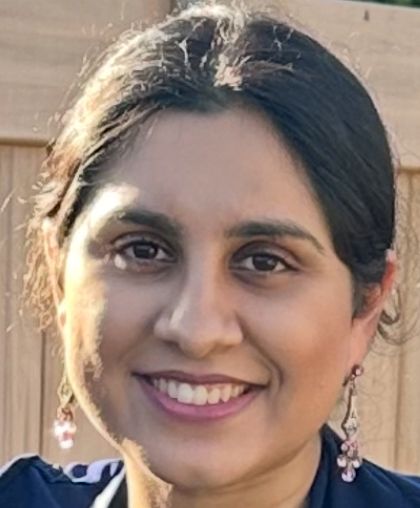The Biomedical Informatics and Data Sciences (BIDS) program at the Johns Hopkins School of Medicine is pleased to announce it is the recipient of a National Library of Medicine (NLM) T15 Training Grant. The NLM training grant funds predoctoral (PhD) and postdoctoral trainees in the Hopkins Biomedical Informatics and Data Sciences Graduate Program for five years through 2027.
The co-Directors are Christopher Chute MD, DrPH and Hadi Kharrazi MD, PhD.
- Dr. Chute is the Bloomberg Distinguished Professor of Health Informatics, Professor of Medicine, Public Health, and Nursing at Johns Hopkins University, and Chief Research Information Officer for Johns Hopkins Medicine. He leads the Biomedical Informatics and Data Science section of the Department of Medicine.
- Dr. Kharrazi is the director of the DrPH Informatics track at the Johns Hopkins School of Public Health. In the Hopkins School of Medicine, he is the director of the Health Sciences Informatics PhD and MSc Research programs, Biomedical Informatics and Data Science.
Fellowship Program – Trainees
The individual to be trained must be a citizen or a noncitizen national of the United States or have been lawfully admitted for permanent residence at the time of appointment. Additional details on citizenship, training period, and aggregate duration of support are available in the NIH Grants Policy Statement.
Areas of research:
- Clinical Research Informatics
- Healthcare/Clinical Informatics
- Translational Bioinformatics
- Public Health Informatics
In 2022, we were awarded the NIH National Library of Medicine (NLM) biomedical informatics training grant. Individuals seeking graduate degrees leading to research careers in biomedical informatics, who are US citizens, non-citizen nationals, or have permanent residency status (as evidenced by Card I-551), are eligible.
The NLM fellowship is awarded after acceptance into the biomedical informatics graduate degree programs. Application for admission to graduate studies is made directly through the Johns Hopkins Graduate admissions portal.
Please consult the BIDS program’s website for application details here.
For questions regarding the predoctoral trainee positions, please contact JH Informatics [email protected].
All trainees are required to pursue their research training full time, normally defined as 40 hours per week, or as specified by the sponsoring institution in accordance with its own policies. Appointments are normally made in 12-month increments, and no trainee may be appointed for less than 9 months during the initial period of appointment, except with prior approval of the awarding unit, or when trainees are appointed to approved, short-term training positions.
Predoctoral trainees must have received a baccalaureate degree by the beginning date of their appointment and must be enrolled in a program leading to a PhD or in an equivalent research doctoral degree program. Health-professional students who wish to interrupt their studies for a year or more to engage in full-time research training before completing their formal training programs, are also eligible.
About the Biomedical Informatics and Data Sciences program at Hopkins
In keeping with the tradition of the Johns Hopkins University and the Johns Hopkins Hospital, the program seeks excellence and commitment in its students to further the prevention and management of disease through the continued exploration and development of health IT. Division resources include a highly collaborative clinical faculty committed to research at the patient, provider and system levels. The admissions process will be highly selective and finely calibrated to complement the expertise of faculty mentors.
Postdoctoral trainees must have received, as of the beginning date of the appointment, a Ph.D., M.D., D.D.S., or comparable doctoral degree from an accredited domestic or foreign institution. Comparable doctoral degrees include, but are not limited to, the following: D.M.D., DC, DO, DVM., OD, DPM, ScD, EngD, DrPH, DNSc, DPT, PharmD, ND (Doctor of Naturopathy), DSW, PsyD, as well as a doctoral degree in nursing research. Documentation by an authorized official of the degree-granting institution certifying all degree requirements have been met prior to the beginning date of the training appointment is acceptable. Individuals in postgraduate clinical training, who wish to interrupt their studies for a year or more to engage in full-time research training before completing their formal training programs, are also eligible.
We invite applicants for postdoctoral training for research careers in biomedical informatics and data science. Such training helps meet the growing need for investigators trained in biomedical computing, data science and related information fields as they directly relate to application domains in health and biomedicine, including health care delivery, basic biomedical research, clinical and translational research, public health and similar areas.
NLM-Funded T15 Training Grant Postdoctoral Fellowships Available
We have two fully-funded postdoctoral fellowship positions on the NIH T15 Biomedical Informatics and Data Science training grant. Requirements to apply are a statement of research, a curriculum vitae, and the names of faculty members aligned with your research interests.
NLM candidates must be U.S. citizens or permanent residents. Individuals from underrepresented minorities are encouraged to apply.
Please contact JH Informatics for details or if you have any questions.
NLM Trainees
 | Nazia Qureshi is a PhD student in the Biomedical Informatics and Data Science program. She has a bachelor’s degree in Pharmacological Chemistry from the University of California, San Diego, and a Master of Public Health degree with an emphasis in epidemiology from the University of California, Los Angeles. She previously worked as an epidemiologist for the Los Angeles County Jail system and is interested in the intersection of clinical and public health informatics. |
 | Jan Matthias is a PhD student in the Biomedical Informatics and Data Science program at the Johns Hopkins University. He completed his bachelor’s and master’s degrees in Health Sciences and Technology at the Swiss Federal Institute of Technology Zurich (ETHZ), where he built a foundation spanning biomedical engineering and biomedical data science. His research has focused on pharmacogenomics, autophagy-related protein interactions, and predictive modeling with large-scale biobank data. In addition, he brings experience in science communication and entrepreneurship through leadership roles in consulting and startup initiatives. His future research interests lie in translational bioinformatics, with a focus on bridging data-driven discoveries to clinical applications. |
 | Robert Barrett is a PhD student in HSI, hailing from the South Carolina Lowcountry. He received his B.S. in Biochemistry at Clemson University (Go Tigers!) and participated in research on metabolic engineering and cancer genetics. His experience within healthcare has included oncology, genetics, hypertension, and opioid/pain management – with significant influence from prior industry experience at Epic and the American Medical Association as a solutions and software engineer. Robert is interested in improving methods for large-scale research and health information exchange, as well as population health through the identification of gaps in care, clinical decision support, and predictive/personalized medicine. His passions include travel, music, fitness, and spending time with his lovely Labrador, Winter, and feline friend Benny. |
 | Anas Belouali is a PhD student in the Health Science Informatics at the Johns Hopkins School of Medicine. Anas is an experienced Health Data Scientist with a background in software and data engineering, predictive modeling, and a history of leading and implementing data science projects in healthcare. Prior to joining the PhD program, Anas earned two master’s degrees in computer engineering and systems medicine. He previously worked as a research faculty at the Innovation Center for Biomedical Informatics at Georgetown University, where he led research efforts in clinical informatics and health IT, and taught in the Master’s program in Health Informatics & Data Science. Anas completed the grant’s trainee fellowship program successfully in 2025. |
 | Woo Yeon Park is a Health Science Informatics PhD student at Johns Hopkins University. She has a bachelor’s degree in Economics at the University of California, San Diego and a master’s degree in Business Analytics at the University of Rochester. She previously worked at Memorial Sloan Kettering Cancer Center using institutional databases to improve quality and safety. She also worked as a data scientist at a health technology company to bridge the gaps in medication adherence and medication affordability. She is passionate about empowering patients and clinicians through informatics innovations and data science methods. |
 | Mahnoor (Noor) Ahmed is a Ph.D. student in the Biomedical Informatics and Data Science program. Her research interests lie at the intersection of digital health and clinical informatics. Noor holds a B.A. in neuroscience from Vanderbilt University, and a M.Eng. from Duke University in biomedical engineering. She joins Johns Hopkins University with several years of experience in health care operations and digital health policy. |
 | Brooke Lawler is Ph.D. student in Biomedical Informatics and Data Science program and is a pharmacist with an interest in healthcare technology and data science. She holds a dual Doctor of Pharmacy/ M.S. in Health Informatics from The University of Iowa. Her previous research leveraged prescription claims and EHR data to better understand prescribing habits and improve patient care and safety. She joins the BIDS PhD program eager to learn how technology systems and data science can improve medication utilization and safety to enhance clinical outcomes. |
 | Star Liu grew up in Shanghai, China. Star graduated from Emory University with a B.S. in Quantitative Sciences (concentration in Biology). He is a graduate of the BIDS master’s program. During his master’s, he worked on a range of research projects, touching on various aspects of biomedical informatics. He worked on decision making in machine learning, information retrieval, OHDSI, phenotyping, data quality, and others. He’s interested in many problems in the healthcare space and has a hard time picking out his favorite. |
 | Ben Martin is an NLM T15 postdoctoral fellow working with the Biomedical Informatics and Data Science section of the Johns Hopkins School of Medicine. He obtained his PhD from Clemson University and the Medical University of South Carolina in May 2023. His dissertation work was completed in partnership with the American Medical Association’s Improving Health Outcomes division, focusing on hypertension control and antihypertensive treatment intensification in clinic-based care. His current role encompasses real-world evidence generation using EHR and claims data, machine learning and data modelling, and executing distributed network studies across multiple health care organizations. Ben completed the grant’s fellowship program in 2025. |
 | Derek J. Baughman, MD, MS, is a board-certified family medicine physician and NLM T15 Postdoctoral Fellow in Biomedical Informatics & Data Science at Johns Hopkins University. A former U.S. Air Force Medical Director of Primary Care, he combines frontline leadership with clinical informatics training at Vanderbilt to develop AI-driven solutions for quality reporting, medical billing, and healthcare delivery. With experience in alternative payment model design at CMS and more than 20 peer-reviewed publications on value-based care, health system operations, and informatics, his work centers on system-level innovation in value-based care and data-driven prevention. |
 | Vahid Andalib is an NLM T15 Postdoctoral Fellow in the Section of Biomedical Informatics and Data Science (BIDS). He earned his PhD in Statistics from the University of Maryland, Baltimore County, where his dissertation focused on developing classification methods for high-dimensional data with applications to DNA microarray analysis in cancer research. His current research focuses on developing and applying data science and informatics methods for causal inference and biostatistical problems, particularly in health services and outcomes research. More broadly, he is interested in the intersection of statistics and machine learning, with the goal of delivering data-driven solutions to real-world challenges. |